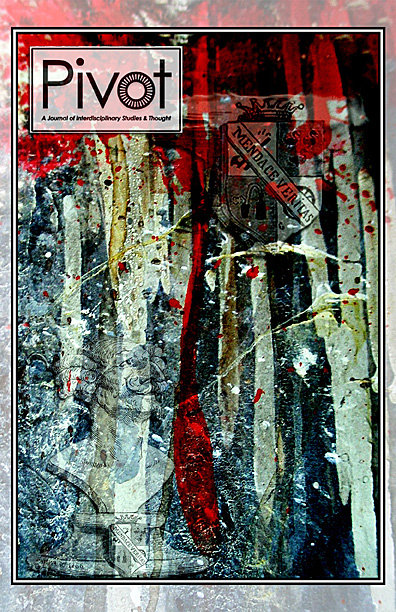“A dynamic of blaming and counterblaming”: J.M. Coetzee’s Analysis of Self-deception in South African Resistance Literature
DOI:
https://doi.org/10.25071/2369-7326.32162Abstract
The aim of this article is to introduce briefly some of the more prominent aspects of these complex questions regarding the interplay of art and politics in the context of the South African literary discourse in the early 1980s. I explore South African resistance literature, and more particularly André Brink’s ideas, and his commitment to political struggle vis-à-vis Jean-Paul Sartre’s notion of politically committed art. I read Coetzee’s challenge to resistance literature as a response with striking similarities to Theodor Adorno’s criticism of committed art, which Adorno leveled at Sartre in his two-part essay “On Commitment.” As both Coetzee and Adorno demonstrate, committed art remains close to the power it criticizes, and does not break free from it. Coetzee maintains that it is the constant task of the writer to resist the binaristic logic of the state by avoiding the lure of self-deception and maintaining an awareness that he, too, is implicated by state violence.
References
Adorno, Theodor W. Prisms. Cambridge: The MIT Press, 1967. Print.
Adorno, Theodor W. “On Commitment I.” Performing Arts Journal 3.2 (1978): 3-11. Print. DOI: https://doi.org/10.2307/3245195
Adorno, Theodor W. “On Commitment II.” Performing Arts Journal 3.3 (1979): 58-67. Print. DOI: https://doi.org/10.2307/3245104
Adorno, Theodor W. Aesthetic Theory. Eds. Gretel Adorno and Rolf Tiedemann. Trans. Robert Hullot-Kentor. Minneapolis: U of Minnesota P, 1997. Print.
Arendt, Hannah. Between Past and Future: Eight Exercises in Political Thought. New York: Penguin Books, 1961. Print.
Adorno, Theodor W. Crises of the Republic: Lying in Politics, Civil Disobedience, On Violence, Thoughts on Politics and Revolution. San Diego: Harcourt Brace, 1972. Print.
Attwell, David. J.M. Coetzee: South Africa and the Politics of Writing. Berkeley: U of California P, 1993. Print.
Attwell, David. “Editor‟s Introduction.” Doubling the Point: Essays and Interviews. Ed. David Attwell. London: Harvard UP, 1992. 1-13. Print.
Bethlehem, Louise. “„A Primary Need as Strong as Hunger‟: The Rhetoric of Urgency in South African Culture under Apartheid.” Poetics Today 22.2 (2001): 365-89. Print. DOI: https://doi.org/10.1215/03335372-22-2-365
Brink, André. Writing in a State of Siege: Essays on Politics and Literature. New York: Summit Books, 1983. Print.
Brink, André. “André Brink talks to Bahgat Elnadi and Adel Rifaat.” The Unesco Courier (September 1993): 4-8. Print.
Christie, Sarah, Geoffrey Hutchings, and Don Maclennan. Perspectives on South African Fiction: Critical Studies in South African Literature. Johannesburg: Ad. Donker, 1980. Print.
Coetzee, J.M. Giving Offense: Essays on Censorship. Chicago: U of Chicago P, 1996. Print. DOI: https://doi.org/10.7208/chicago/9780226111773.001.0001
Coetzee, J.M. Doubling the Point: Essays and Interviews. Ed. David Attwell. London: Harvard UP, 1992. Print.
De Kock, Leon. “A prison-House of Mirrors?” Journal of Literary Studies 5.2 (1989): 229-31. Print.
Derrida, Jacques. “History of the Lie: Prolegomena.” Graduate Faculty Philosophy Journal. 20.1 (1997): 129-61. Print. DOI: https://doi.org/10.5840/gfpj199719/202/114
Diala, Isidore. “André Brink and Malraux.” Contemporary Literature 47.1 (Spring 2006): 91-113. Print. DOI: https://doi.org/10.1353/cli.2006.0014
Durrant, Samuel. “Bearing Witness to Apartheid: J.M. Coetzee‟s Inconsolable Works of Mourning.” Contemporary Literature 40.3 (1999): 430-63. Print. DOI: https://doi.org/10.2307/1208885
Durrant, Samuel. Postcolonial Narrative and The Work of Mourning: J.M. Coetzee, Wilson Harris, and Toni Morrison. Albany: SUNY Press, 2004. Print.
JanMohamed, Abdul R. “The Economy of Manichean Allegory: The Function of Racial Difference in Colonialist Literature.” Critical Inquiry 12.1 (1985): 59-87. Print. DOI: https://doi.org/10.1086/448321
Kronick, Joseph G. “Philosophy as Autobiography: The Confessions of Jacques Derrida.” MLN 115.5 (2000): 997-1018. Print. DOI: https://doi.org/10.1353/mln.2000.0064
Parry, Benita. “Some Provisional Speculations on the Critique of „Resistance‟ Literature.” Altered State?: Writing and South Africa. Eds. Elleke Boehmer, Laura Christman, and Kenneth Parker. Sydney: Dangaroo Press, 1994. 11-24. Print.
Peck, Richard. “Condemned to Choose, But What? Existentialism in Selected Works by Fugard, Brink, and Gordimer.” Research in African Literatures 23.3 (Autumn 1992): 67-84. Print.
Pickering, Robert. “Témoignage and Engagement in Sartre‟s War-Time Writings.” The Modern Language Review 92.2 (1997): 308-23. Print. DOI: https://doi.org/10.2307/3734804
Rich, Paul. “Tradition and Revolt in South African Fiction: The Novels of André Brink, Nadine Gordimer and J. M. Coetzee.” Journal of Southern African Studies 9.1 (Oct. 1982): 54-73. Print. DOI: https://doi.org/10.1080/03057078208708050
Rich, Paul. “Apartheid and the Decline of the Civilization Idea: An Essay on Nadine Gordimer‟s „July‟s People‟ and J.M. Coetzee‟s „Waiting for the Barbarians.‟” Research in African Literatures 15.3 (1984): 365-93. Print.
Sartre, Jean-Paul. What is Literature? Trans. Bernard Frechtman. New York: Philosophical Library, 1949. Print.
Seroke, Jaki. “Black Writers in South Africa: Jaki Seroke Speaks to Miriam Tlali, Sipho Sepamla and Mothobi Mutloatse after Steering Committee Meeting of the African Writers‟ Association at Khotso House in 1981.” Ten Years of Staffrider. Eds. Andrias Walter Oliphant and Ivan Vladislavic. Johannesburg: Ravan Press, 1988. 303-9. Print.
White, Hayden. “The Modernist Event.” The Persistence of History: Cinema, Television, and the Modern Event. Ed. Vivian Sobchack. New York: Routledge, 1996. 17-38. Print.

